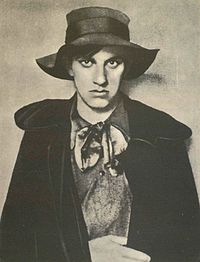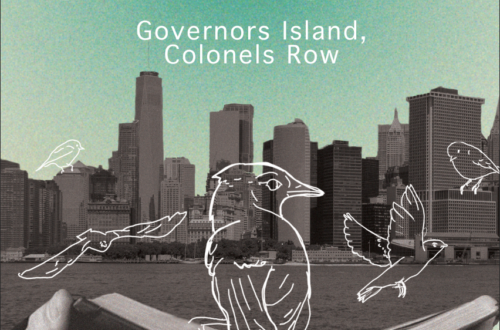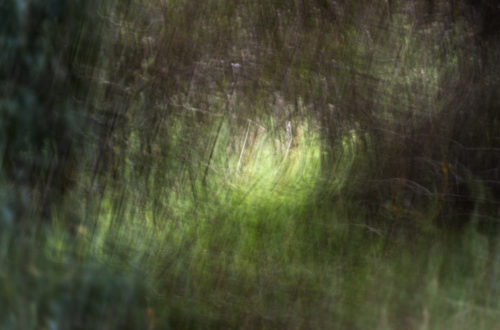
“The Author Dedicates These Lines to His Beloved Self” by Vladimir Mayakovsky (translated by Val Vinokur)
The Author Dedicates These Lines to His Beloved Self
Heavy.
Like six blows.
“Caesar’s unto Caesar––God’s unto God.”
But where is a guy
like me
supposed to go?
Where is my lair prepared?
If I were
still little,
like the Great Ocean,
I’d get up on my wavy tiptoes,
caress the moon with the tide.
Where can I find a beloved,
someone just like me?
She wouldn’t fit into the tiny sky!
O if only I were penniless!
Like a billionaire!
What’s money to the soul?
There’s an insatiable thief in her.
The unbridled horde of my desires
will not be satisfied by the gold of all the Californias.
O if I were tongue-tied,
like Dante,
or Petrarch!
Set my soul on fire for the one!
Turn her to ash with verse!
And my words
and my love––
an arche de triomphe:
the lovers of the ages
passing through without a trace,
magnificently.
O if I were
quiet
like thunder––
I’d moan,
my trembling would fill this doddering nunnery of a world.
If I roared my enormous voice
with all of his might––
the comets would wring their burning hands
and hurtle down in despair.
I would gnaw at the night with my eyes––
o if only I were
lackluster
like the sun!
What I really need
is to drench
the meager bosom of the earth
with my shine.
I’ll walk along,
dragging my beloved beast.
On which night,
delirious,
helpless,
which Goliaths conceived me––
so large
and so useless?
1916
*****
Себе, любимому, посвящает эти строки автор Влади́мир Маяко́вский
Четыре.
Тяжелые, как удар.
«Кесарево кесарю — богу богово».
А такому,
как я,
ткнуться куда?
Где для меня уготовано логово?
Если б был я
маленький,
как Великий океан, —
на цыпочки б волн встал,
приливом ласкался к луне бы.
Где любимую найти мне,
такую, как и я?
Такая не уместилась бы в крохотное небо!
О, если б я нищ был!
Как миллиардер!
Что деньги душе?
Ненасытный вор в ней.
Моих желаний разнузданной орде
не хватит золота всех Калифорний.
Если б быть мне косноязычным,
как Дант
или Петрарка!
Душу к одной зажечь!
Стихами велеть истлеть ей!
И слова
и любовь моя —
триумфальная арка:
пышно,
бесследно пройдут сквозь нее
любовницы всех столетий.
О, если б был я
тихий,
как гром,—
ныл бы,
дрожью объял бы земли одряхлевший скит.
Я если всей его мощью
выреву голос огромный —
кометы заломят горящие руки,
бросятся вниз с тоски.
Я бы глаз лучами грыз ночи —
о, если б был я
тусклый,
как солнце!
Очень мне надо
сияньем моим поить
земли отощавшее лонце!
Пройду,
любовищу мою волоча.
В какой ночи,
бредовой,
недужной,
какими Голиафами я зачат —
такой большой
и такой ненужный?
<1916>
VLADIMIR MAYAKOVSKY (1893-1930) was a brash poet, playwright, artist, and actor, who became a leading Russian Futurist. Having made his mark with such long poems as “The Backbone Flute” and “Cloud in Pants,” he lent his talents to the Bolshevik Revolution, even as he began to chafe against the constraints of Soviet orthodoxy after completing two satirical plays (The Bedbug and The Bathhouse) lampooning government bureaucracy. He traveled to America in 1925 and to Western Europe in 1928. In 1935, five years after Mayakovsky took his own life in Moscow, Stalin praised his work, leading to his rehabilitation and canonization as the “Poet of the Revolution.”
VAL VINOKUR was born in Moscow and immigrated to Miami Beach as a child. He is the author of The Trace of Judaism: Dostoevsky, Babel, Mandelstam, Levinas (Northwestern 2009), and has published poetry, translations, and prose in The Boston Review, New American Writing, The Literary Review, McSweeney’s, and The Massachusetts Review. His co-translations with Rose Réjouis were recognized with a Guggenheim Fellowship. He teaches literature at The New School, where he is chair of Liberal Arts in the BA Program for Adults and directs the minor in Literary Translation. His annotated translation of seventy-two stories by Isaac Babel, The Essential Fictions, was published in 2017. Vinokur is the founding editor of Poets & Traitors Press.
© LIT Magazine Issue #33, 2019




